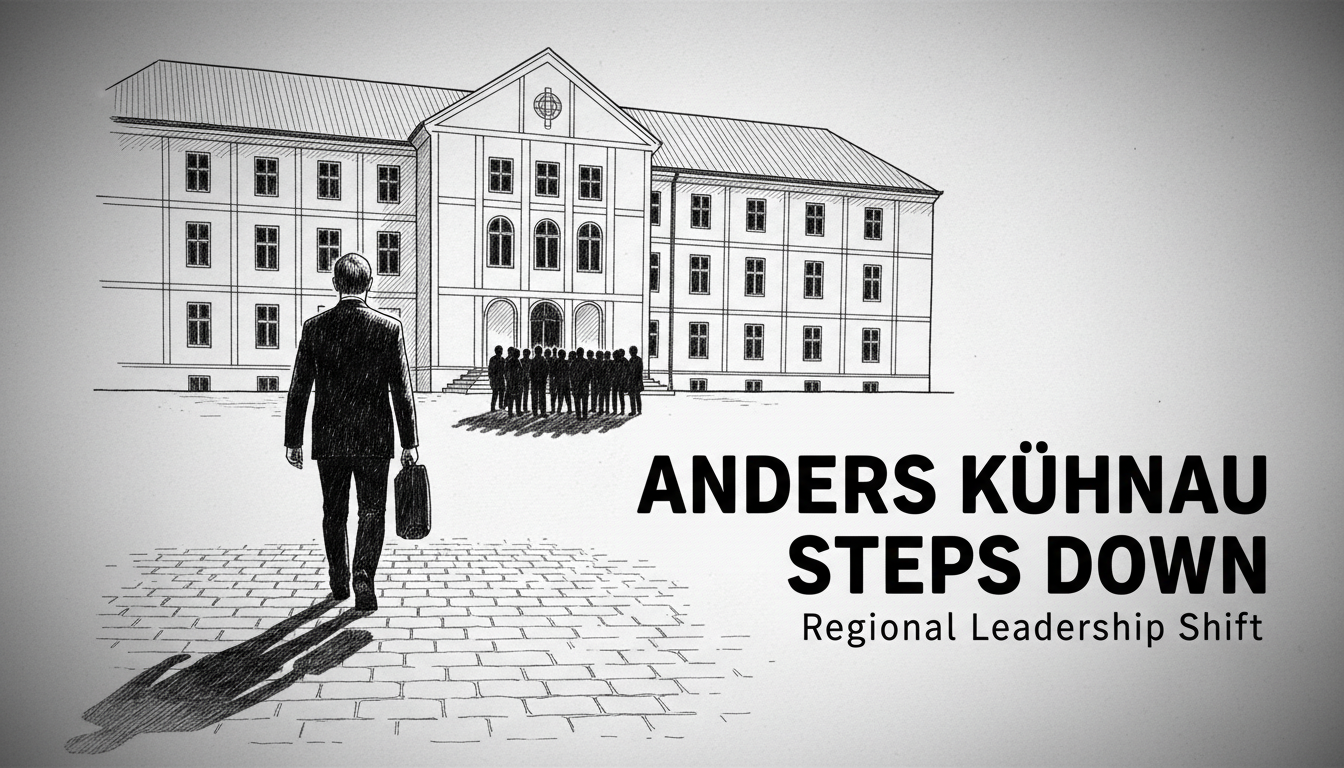Anders Kühnau has ended his tenure as chair of the Central Denmark Regional Council. The Social Democrat politician confirmed his departure in a statement on Wednesday morning. He finds himself outside a new coalition agreement formed by Anders G. Christensen of the Liberal Party. Christensen secured support from multiple parties within the regional government.
This political shift represents a significant change in Central Denmark's leadership structure. Regional councils in Denmark hold substantial power over healthcare, regional development, and public transportation. The Central Denmark Region serves over 1.3 million residents across 19 municipalities.
Political observers note this development reflects ongoing realignments in Danish regional politics. Coalition building often requires delicate negotiations between multiple parties. The exclusion of a sitting chairperson from new governing agreements signals substantial political reorganization.
What does this mean for healthcare services in Central Denmark? Regional councils manage hospital systems and specialized medical care. Leadership changes can influence long-term health policy decisions and budget allocations. The region operates several major hospitals including Aarhus University Hospital.
International residents in Central Denmark should monitor how this affects English-language services. Regional governments determine local healthcare accessibility and transportation infrastructure. Expat communities often rely on clear communication about such administrative changes.
Danish regional politics operates differently from national government structures. Council members are elected directly by citizens every four years. They then negotiate among themselves to form governing coalitions and select chairs.
This transition occurs amid ongoing discussions about regional reform in Denmark. Some political parties advocate consolidating the country's five regions into larger administrative units. Leadership stability becomes crucial during such structural debates.
The new coalition led by Christensen will now determine the region's political direction. They face immediate decisions about healthcare funding and public transportation investments. The Central Denmark Region manages an annual budget exceeding 30 billion Danish kroner.
Regional council chairs in Denmark wield considerable influence over local development priorities. They coordinate with municipal governments and national authorities on major projects. The position involves balancing diverse regional interests across urban and rural areas.
Political analysts suggest this change might signal broader shifts in Danish local governance. Similar realignments could emerge in other regions as coalition dynamics evolve. The coming weeks will reveal the practical implications for Central Denmark's residents and services.

